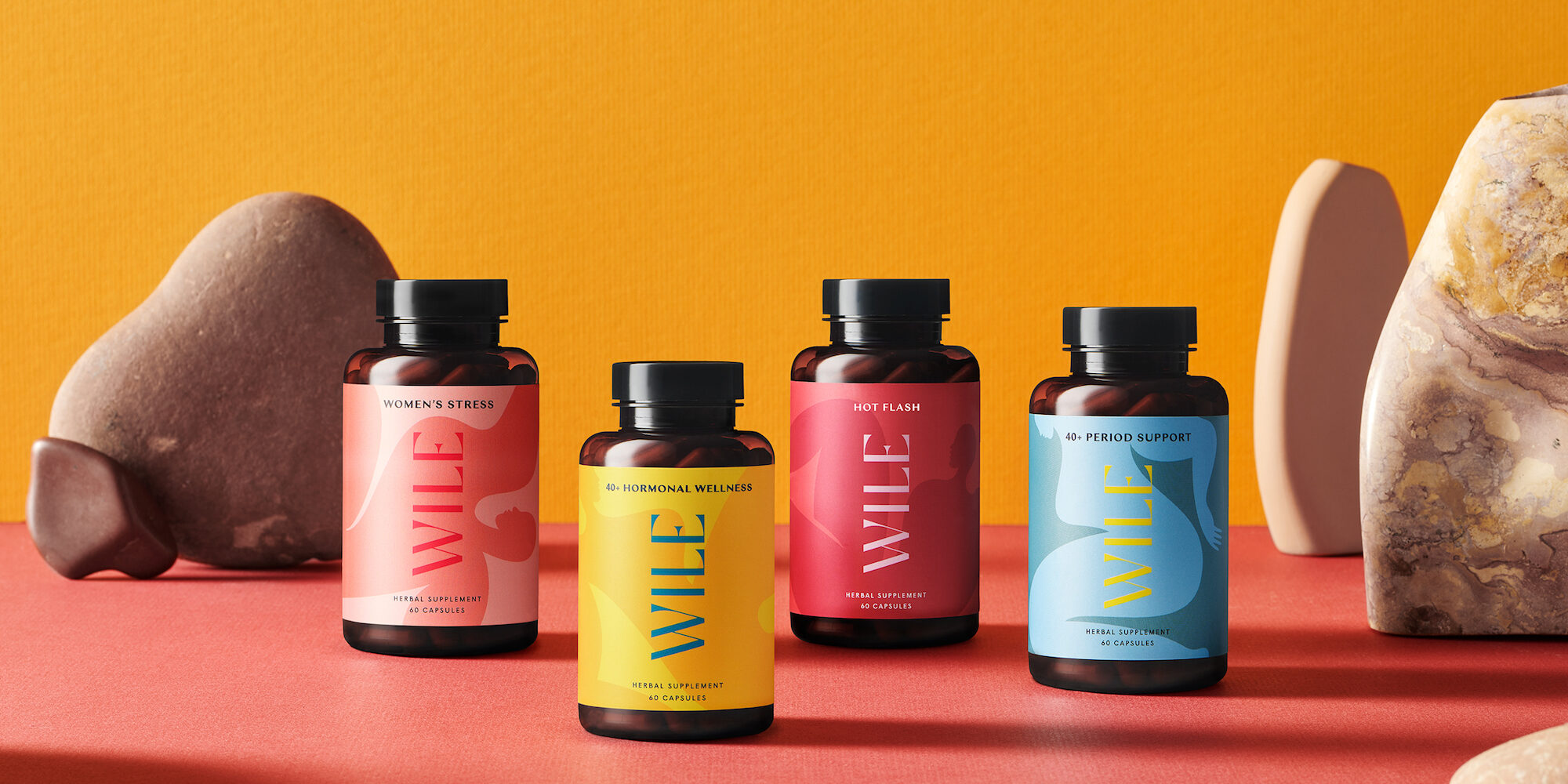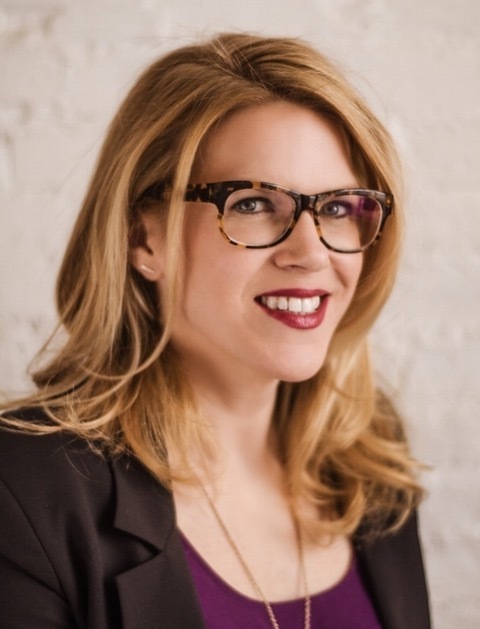
Hormonal Health Specialist Wile Enters 6,500 Walgreens Stores, Expects To Double Sales
Wile’s winning streak is continuing.
On the heels of launching at Whole Foods and closing a $3 million seed round, the women’s hormonal health brand has rolled out to 6,500 Walgreens locations nationwide with its supplements Perimenopause Support and Hot Flash. Two additional supplements, Women’s Stress and 40+Period Support, will be in 2,000 high-performing locations. The products all retail at $39.99 for a 30-day supply. Buoyed by the Walgreens’ partnership, Wile’s sales, already in the millions in just seven months, are set to double in the second half of 2022.
The brand is housed in Walgreens’ vitamin and supplement section. Co-founder Julie Kucinski says Wile’s supplements make the most sense for shoppers at the drugstore chain, who are venturing to it for healthcare reasons. She explains the capsules available at Walgreens “are for day-to-day hormonal balancing, like entry points. That makes sense to us for that customer, that buying experience, why she’s there and as an introduction to the brand for now.”
Wile’s complete range spans plant-based supplements, tinctures and drinks priced from $29.99 to $39.99. The eco-conscious e-tailer Grove Collaborative carries the full range. According to Wile, its products are designed to be mixed and matched for “overall hormonal health and perimenopause’s many unpredictable symptoms.”

For Kucinski, who held positions at Aveda and Aunt Fannies before launching Wile last year with Gwen Floyd, Corey Scholibo and the actress Judy Greer, the most exciting aspect of the brand’s Walgreens rollout is that it’s breaking into geographies it hasn’t been in before, putting it in front of new customers. Walgreens, which has a total of about 9,000 units in the United States, is much larger than Whole Foods, which operates about 500 doors in the country and primarily serves customers shopping for premium goods.
“Walgreens is everywhere,” says Kucinski. “I’m from a rural area, and there’s a Walgreens in my hometown…We want to be aspirational, we want to have the highest quality, we want to be an amazing high-integrity brand that’s beautiful, but a lot of different women should have access to that.”
She emphasizes increased access is important to Wile due to the inequity of the American healthcare system across racial and socioeconomic lines. Kucinski notes menopause’s disproportionate effects on women of color exacerbated the problem. “It hits Black and brown women harder than it hits white and Asian women. It starts earlier, it lasts longer. They have a tougher run of it,” she says. “It’s inequitable on a physiological level, so the more neighborhoods we can get into, the bigger impact we can make.”
In rural areas, Wile can reach women at Walgreens as health options are vanishing around them. “Hospitals are closing. Clinics are closing. Doctors are leaving,” she says. “There literally aren’t places for people to get basic services anymore, and a quarter of the United States lives in a rural area.”
Walgreens is the latest mass-market retailer to refresh its women’s wellness and sexual health selection by bringing in nascent brands providing alternatives to legacy products often with better-for-you formulations. Target and Walmart underwent refreshes last year.
Along with Wile, Walgreens has recently introduced period support supplement brand Semaine and gen Z intimate care brand Queen V. Developed originally by now-defunct incubator Brandable and acquired by Reckitt in 2021, Queen V unveiled a rebrand earlier this year that retained its colorful, bold identity.
In the past year, Walgreens’ retail sales have been bolstered by coronavirus testing and vaccinations drawing foot traffic into its stores. They increased 14.5% in the second quarter from the same quarter a year ago. Same-store sales 14.7% for the like period. The chain’s health and wellness sales surged 43.3%, and its personal care and beauty sales advanced 9.7% and 6.5%, respectively.
The women’s wellness segment, especially the slice of it geared to women 40 years old and above, has boomed in recent years. Several brands have jumped into it as retailers and investors wake up to the multibillion-dollar opportunity. Kucinski doesn’t fear the competition. Instead, she believes a rising tide will lift all boats in the perimenopause and menopause merchandise field.
“There’s a lifetime of non-conversation and stigma,” says Kucinski. “The better we all do, the better we’ll all do, that includes the women we’re trying to serve as well as our competition. The more, the merrier. This is such an untapped area. We need each other. Women, generally, and women that age, we really need each other.”





Leave a Reply
You must be logged in to post a comment.